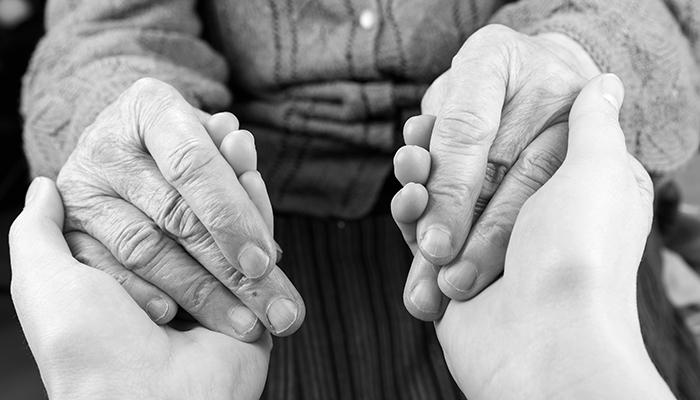Hidden behind the doors of private homes and apartments are people who receive little notice except from family and close friends. They bear all-consuming burdens with love, frustration and fatigue.
They are caregivers. They are husbands and wives. They are daughters and sons. Friends, too.
Often, but not always, the caregivers are ministering to loved ones, who, due to dementia, Alzheimer’s and other brain diseases, cannot communicate. In many ways, they no longer are the people who once were vibrant, with distinct personalities, often the centrifugal forces in their family and community orbits.
They are shadows of themselves. They are living lives devoid of quality and engagement.
Fortunately, they are not alone. Nor should they be. Their caregivers are heroes; their only weapons are love, compassion and perseverance. Their lives too are mostly joyless.
I think about an Easton friend who has cared for a dementia-ridden wife, a former teacher, for at least half a dozen years. He is rarely seen. He took on sole responsibility as the caregiver.
Here at BayWoods, a continuing care retirement community, I’ve seen incredible acts of heroism on the part of wives and husbands. Nothing will deter these strong and loyal souls from caring for and about their disabled spouses. They see a sliver of life in a person whom they love and cherish.
That bond will never vanish.
In an essay in the New York Times written by Tom Coughlin, the two-time, hard-nosed Super-Bowl-winning coach of the New York Giants, entitled “Nothing Could Prepare Me for Watching My Wife Slip Away,” he reveals that his wife Judy suffers from an incurable brain disorder that diminishes her ability to walk, talk, think and control body movements. Her memory and ability to voice emotions are depleted.
“Judy’s decline has been nothing but gut-wrenching and has placed me in a club with tens of millions of other Americans who serve as a primary caregiver for a loved one,” Coughlin said. “Admittedly, transitioning from being with an N.F.L. franchise to a full-time caregiver wasn’t easy.
“It’s still not easy. The playbook is either changing by the minute or so numbingly repetitious, you lose track of time.”
Describing his wife as a vivacious, outgoing woman and himself as “lousy at my new job” during his first year of caregiving and “still lousy at being at home,” “I know there’s no other place I could ever be.”
Engaged now in a full-time job that has few timeouts and no half-time, Coughlin said, “A friend said that we don’t get to choose our sunset, and that’s true, but I am so blessed to get to hold Judy’s hand through hers.”
Caregiving is exceedingly difficult. Frustration is common, and so is anger targeted both at yourself for not being able to do more and your loved one, who no longer can openly love and treasure you.
Tom Coughlin’s essay was heart-wrenching. But he provided significant coaching to other caregivers facing a situation where victory is not the objective.
And he rightly paid homage to unsung, often unseen heroes who operate outside their comfort zones to ensure that their loved ones are treated with dignity and empathy.
As Judy Cornish, an author who has written about caregiving for those suffering from dementia, said, “Offering care means being a companion, not a superior. It doesn’t matter whether the person we are caring for is experiencing cancer, the flu, dementia, or grief.
“If you are a doctor or surgeon, your expertise and knowledge come from a superior position. But when our role is to be providers of care, we should be there as equals.”
Columnist Howard Freedlander retired in 2011 as Deputy State Treasurer of the State of Maryland. Previously, he was the executive officer of the Maryland National Guard. He also served as community editor for Chesapeake Publishing, lastly at the Queen Anne’s Record-Observer. In retirement, Howard serves on the boards of several non-profits on the Eastern Shore, Annapolis and Philadelphia.



Kathy Bosin says
Beautiful tribute to caregivers. Thanks for reminding us, Howard.
Howard Freedlander says
Thank you, Kathy. Caregivers are special people.